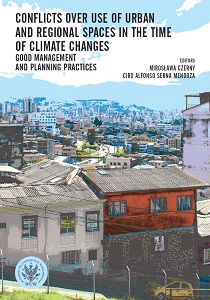PUBLIC SPACES IN URBAN POLICY: EVOLUTION OF APPROACHES ON THE EXAMPLE OF A POST-SOCIALIST CITY
Public spaces in urban policy: evolution of approaches on the example of a post-socialist city
Author(s): Sylwia Dudek-Mańkowska, Mirosław Grochowski
Subject(s): Geography, Regional studies
Published by: Wydawnictwa Uniwersytetu Warszawskiego
Keywords: public space; post-socialist city; Warsaw
Summary/Abstract: The chapter deals with the issues of shaping, management and functioning of public spaces in the city that has experienced changes of systemic conditions for its development. The case study is Warsaw – the capital of Poland, which has undergone a profound functional and spatial transformation, resulting from the change of the political system in Poland in 1990. The change of the political system led to the emergence of new rules governing the development of cities. The re-birth of territorial self-government and the empowerment of society resulted in a new situation in which the local community – i.e. the city authorities and its inhabitants – not the central government or the communist party, decides about the city’s development paths and the ways and forms of developing its space, including public spaces. Residents have the opportunity to articulate their needs and interests. The city government is responsible for coordinating development programming and spatial planning. One of the goals of the city’s social and spatial policy is to provide residents with the high quality public spaces. These spaces have played different roles in Warsaw over the years and have had different meanings for the inhabitants. The chapter presents the evolution of the approach to public spaces presented by the city authorities and residents. Its causes and effects are discussed. The chapter also includes an assessment of the activities of the city authorities that lead to the formulation of a policy for the development of public spaces. The text uses the results of the study conducted by the authors of the chapter for the purposes of implementing the Warsaw development strategy #Warszawa2030.
- Page Range: 85-100
- Page Count: 16
- Publication Year: 2021
- Language: English
- Content File-PDF

